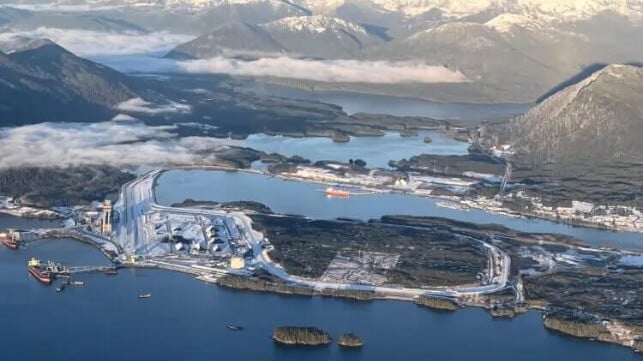Trigon Takes FID for Prince Rupert LPG as Canada Grows Gas Exports to Asia

Canadian firm Trigon Pacific Terminals intends to increase bulk liquefied petroleum gas (LPG) exports to Asian markets after reaching a final investment decision (FID) on a C$750 million (US$552 million) export facility at the Port of Prince Rupert, British Columbia. It comes as Canada works to expand its energy exports including the Canada LNG plant in Vancouver which is scheduled to start exports in the coming weeks.
Privately-owned Trigon called reaching the FID a critical milestone in the implementation of the open-access export facility that will have a capacity of 2.5 million tonnes per annum. Expected to commence exports in late 2029, the facility will be instrumental in increasing Canadian LPG export sales beyond its traditional U.S. market to the growing Asian markets particularly Japan, South Korea, and India.
The facility, which is now subject to securing all necessary legal and regulatory approvals, will involve the construction of 98,000 cubic meters of new LPG storage capacity and will leverage existing vessel loading infrastructure. The facility will also leverage existing rail yards, with new rail unloading facilities to provide complete unit train unloading.
Trigon operates a multi-commodity bulk export terminal at Prince Rupert that has the capacity to load metallurgical coal, thermal coal, and petroleum coke at a rate of 9,000 tonnes per hour. In 2023, the company decided to redevelop a portion of the existing coal facilities for LPG exports. The move was informed by the Canadian government's decision to ban thermal coal exports starting in 2030.
The company contends that by taking advantage of the available terminal capacity and infrastructure combined with its experience in handling propane, investing in the LPG export facility is a logical next step.
Trigon highlights that demand for Canadian LPG is at its peak with off-take discussions ongoing with Asian markets. Japan, in particular, has been increasing LPG imports from Canada, achieving a stable import volume of 2 million tonnes in 2024. More than 20 percent of Japan's total propane imports flow through the Port of Prince Rupert. Nikkei reported today that Mitsubishi has also agreed to begin LNG imports from Canada, marking the first time Japan has contracted for large-scale Canadian LNG imports.
British Columbia's Environmental Assessment Office also reported this week that work is now underway on the new Prince Rupert Gas Transmission natural gas pipeline project. It will provide a link from Hudson's Hope in northeastern B.C. to Lelu Island near Prince Rupert bringing LNG to a proposed liquefaction plant.
Canada Energy Regulator’s data show that owing to an increase in natural gas production, the country’s propane and butane exports have been on a steady growth path. In 2024, the country’s propane exports averaged 218,300 barrels per day (bpd), a 9.2 percent increase while butane exports surged 15 percent to an average of 56,100 bpd.
“This FID is a pivotal moment for Trigon and for Canada’s energy sector, creating new pathways for Canadian LPG to reach international markets, and driving economic growth, resiliency and opportunity for Canadians,” said Rob Booker, Trigon CEO.
Trigon says that the new facility will address a pressing need for Canadian energy producers who are facing significant challenges accessing export markets due to capacity constraints at existing Prince Rupert facilities.
Trigon’s is the second large-scale export facility being built at Prince Rupert. Last year, U.S. company AltaGas and its Dutch partner Royal Vopak reached an FID for the Ridley Island Energy Export Facility being constructed at a cost of $1.3 billion.
